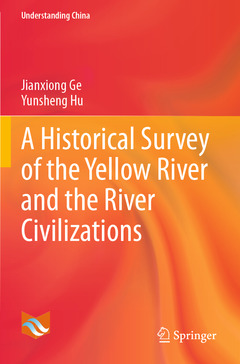Description
A Historical Survey of the Yellow River and the River Civilizations, 1st ed. 2021
Understanding China Series
Language: English
Subject for A Historical Survey of the Yellow River and the River...:
Publication date: 01-2022
242 p. · 15.5x23.5 cm · Paperback
Publication date: 01-2021
Support: Print on demand
Description
/li>Contents
/li>Biography
/li>Comment
/li>
Explores the relationship between rivers and ethics in China
Traces the origin and developmental course of Chinese civilization, which has always been closely intertwined with the Yellow River
Draws comparisons between the Yellow River and the Yangtze, Nile, Tigris, Euphrates, and Indus rivers to provide insights into how they have contributed to civilizations




